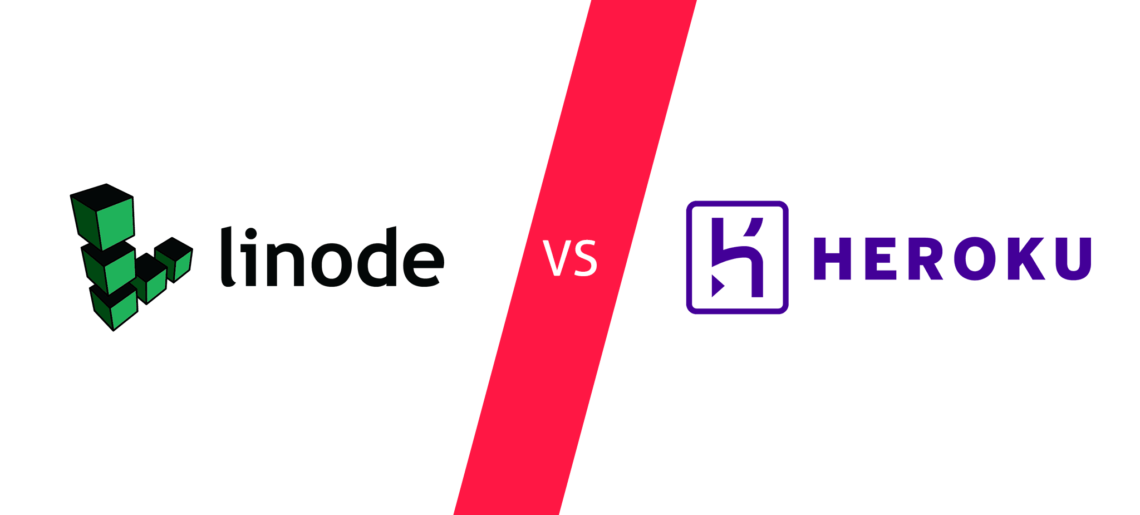Linode vs Heroku | Secrets Unlocked

Cloud computing has changed the entire landscape of how businesses operate across a plethora of industry sectors. Innovations keep coming in terms of improved security, agile business processing, web and application hosting, and data management. Linode and Heroku are two of the several highly relied upon cloud computing solutions providers today.
Both these companies offer useful features for developers, and business owners looking to enhance their infrastructural capabilities. Opting for either one can enhance your business outcomes as they are tried-and-tested by users worldwide.
The Linode vs Heroku argument has no simple conclusion. But, one can judge which one is better for them by looking at their pricing, features, and benefits. Here is what you will learn reading this article:
- What is Linode? Pricing, features, and benefits
- What is Heroku? Pricing, features, and benefits
- Linode vs Heroku | Comparison
Read on to get a better idea of the subject.
Contents
What is Linode?

Linode is a web hosting service provider offering VPS (Virtual Private Server) cloud hosting plans exclusively for Linux servers. It offers a selection of networking, storage, and computing tools along with a marketplace for its users. Linode provides support for businesses that prefer user-friendly cloud computing. The company has 9 data centers across 3 global regions.
Linode offers several web hosting server options for users hosting their websites. The company offers its customers a more hands-on control over their virtual web servers. It also provides dedicated and managed hosting options at reasonable rates. Users can also opt for its Backup and NodeBalancer services for deriving better outcomes.
Linode Pricing
- Shared Plans – Linode offers Shared Plans featuring virtual machines with different performance, power, storage, and CPU core specifications. Shared plans are priced between $5/month to $ 960/ month.
- Dedicated Plans – Dedicated Plans are better for applications that are more CPU-heavy and need more resources. These plans are priced between $30/month to $ 3840/ month.
- Block Storage – Linode lets users increase their server storage capacities with additional Block Storage, priced between $1/month for 10GB to $1024/month for 10240GB.
- Object Storage – Object Storage is an S3-compatible storage option priced between $5/month for 250 GB to $1000/month for 50 TB.
Linode Features
- Kubernetes – Linode Kubernetes Engine or LKE refers to an engine for the deployment and management of containerized apps and workloads.
- Shared Instances – Shared Instances refer to a range of resources that can aid in various cloud computing applications.
- Dedicated CPU – Linode provides Dedicated CPU for resource-heavy applications, ensuring top-notch performance. This feature may help you make a decision on Linode vs Heroku and other cloud services.
- Block Storage – Block Storage helps to increase the storage capacity of Linode servers and preserves data following Linode deletion.
- Object Storage – This S3-compatible storage feature can be purchased by users with additional backup and archiving requirements.
- NodeBalancers – The NodeBalancers feature ensures better availability for your services and applications.
- DDoS Protection – Linode offers a real-time DDoS Protection feature to effectively protect your service assets.
Linode Advantages
- Linode is preferred by many developers and business owners for its simplicity and ease-of-use.
- Linode 32-bit and 64-bit servers offer peak performance for business applications and services.
- Linode is quite cost-effective for most users and offers ample bandwidth, space, and RAM compared to many competitors.
What is Heroku?

Heroku is a PaaS provider that lets developers perform effortless deployment, management, and scaling of applications. This cloud platform provides support for several programming languages including PHP, Java, Node.js, Ruby, Go, Scala, Python, and Clojure. Virtual containers named ‘Dynos’ are used for users to run their applications.
Heroku users are charged every month depending on how many Dynos or virtual computers they require for applications. The Heroku PaaS platform and the applications built by users with it are deployed to AWS (Amazon Web Services). Users find application development on the Heroku platform quite convenient due to its ease-of-use.
Heroku Pricing
- Free and Hobby – The Free and Hobby plan from Heroku starts at $0. It is most suitable for users who have requirements for deploying non-commercial applications, including proof of concepts, MVPs, and personal projects.
- Production – The Heroku Production plan starts from a price of $25 per month. Its cost may be higher depending on any additional requirements purchased by the user. The Production plan is the right fit for companies that intend to launch business applications such as web applications and APIs.
- Advanced – The Advanced plan from Heroku starts at $250. It is geared toward businesses with more advanced development and usability requirements. The Advanced plan is suitable for applications with complex features and provides optimal performance.
- Enterprise – The Enterprise package from Heroku is for users who are seeking customized prices for their flexible requirements. This plan is best suited for the needs of large companies that have greater requirements for security, compliance, and collaboration.
Heroku Features
- Heroku DX – Heroku DX offered by Heroku is an app-focused delivery mechanism that helps developers obtain better focus on application creation and deployment, and gain freedom from distractions.
- Heroku Runtime – Dynos are the containers of the Heroku PaaS platform for running applications. Heroku offers a fully-managed runtime environment that offers support for code in different programming languages.
- Heroku OpEx – Heroku OpEx is a crucial feature that aids in troubleshooting and resolving detected issues in applications. OpEx equips users with the ability to modify operation flows effortlessly.
Heroku Advantages
- Heroku ensures complete security for your applications at all times and minimizes the need for constant security patching. It offers security for your application assets regardless of the complexity of your requirements.
- Heroku containers or Dynos are user-friendly and they can be replicated depending on resource requirements. Users can activate horizontal scaling by clicking a button, and create any number of required applications.
- Developers around the world prefer Heroku for its ease-of-use and simplicity. It features a simplistic interface and one-click deployment options. Heroku also makes it quite easy to release new software versions.
Linode vs Heroku | Comparison
| Linode | Heroku | |
| Cloud Category | IaaS – Infrastructure as a Service | PaaS – Platform as a Service |
| Description | Cloud hosting for Linux servers | PaaS that enables developers to build, run, and operate applications entirely in the cloud. |
| Start Date | 2003 | 2007 |
| Parent Company | Independent | SalesForce |
| Number of Employees as per LinkedIn | 219 | 224 |
| Datacenter Locations | 2 | 11 |
| Server Level Access | Yes | No |
| Flexibility | High | Low |
| Out of the box development blocks | No | Yes |
| Price | Less expensive | More expensive |
| Managed Services | Offer managed, unmanaged services, and professional services | Managed Services |
| Support | 24/07 | 24/07 |
Conclusion
This article compared Linode and Heroku cloud providers.
Linode is one of the pioneers of cloud computing and started to operate in 2003. They have 11 datacenters spread out across all world continents (except Africa) and are a best in class solution for Linux servers deployment. Their benefits include low costs, simple pricing structure, and great support.
Heroku is a PaaS – Platform as a Service that started operations in 2007 and was acquired by SalesForce in 2010. It adds an abstraction layer on top of virtual machines and provides out of the box building blocks for developers. The advantages include scalability, ease of use, and value-added development tools.
General FAQ
What is Linode?
Linode is one of the pioneers of cloud computing and started to operate in 2003. They have 11 datacenters spread out across all world continents (except Africa) and are a best in class solution for Linux servers deployment. Their benefits include low costs, simple pricing structure, and great support.
What is Heroku?
Heroku is a PaaS – Platform as a Service that started operations in 2007 and was acquired by SalesForce in 2010. It adds an abstraction layer on top of virtual machines and provides out of the box building blocks for developers. The advantages include scalability, ease of use, and value-added development tools.
What are the differences between Linode and Heroku?
– Linode is an IaaS – Infrastructure as a Service provider and delivers cloud hosting for Linux servers.
– Heroku is a PaaS – Platform as a Service provider and allows developers to build, run, and operate apps completely in the cloud.
– Linode is less expensive in comparison to Heroku
– Heroku provides more value-added layers in comparison to Linode



